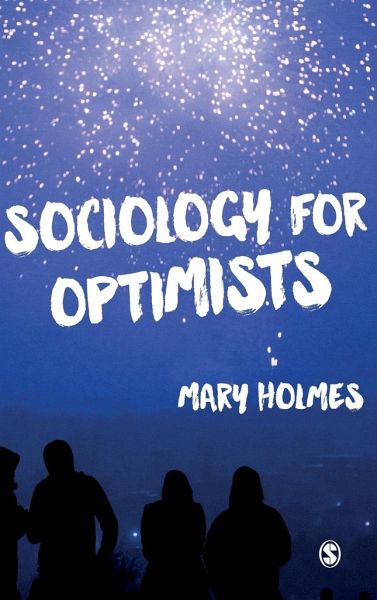
Sociology for Optimists
Versandkostenfrei!
Versandfertig in 6-10 Tagen
86,99 €
inkl. MwSt.
Weitere Ausgaben:

PAYBACK Punkte
43 °P sammeln!
Breaking away from the idea that sociology only ever elaborates the negative, Sociology for Optimists shows that sociology can provide hope in dealing with social issues through critical approaches that acknowledge the positive.From politics and inequality to nature and faith, Mary Holmes shows how a critical and optimistic sociology can help us think about and understand human experience not just in terms of social problems, but in terms of a human capacity to respond to those problems and strive for social change.With contemporary case studies throughout grounding the theory in the real worl...
Breaking away from the idea that sociology only ever elaborates the negative, Sociology for Optimists shows that sociology can provide hope in dealing with social issues through critical approaches that acknowledge the positive.
From politics and inequality to nature and faith, Mary Holmes shows how a critical and optimistic sociology can help us think about and understand human experience not just in terms of social problems, but in terms of a human capacity to respond to those problems and strive for social change.
With contemporary case studies throughout grounding the theory in the real world, this is the perfect companion/antidote to studying sociology.
From politics and inequality to nature and faith, Mary Holmes shows how a critical and optimistic sociology can help us think about and understand human experience not just in terms of social problems, but in terms of a human capacity to respond to those problems and strive for social change.
With contemporary case studies throughout grounding the theory in the real world, this is the perfect companion/antidote to studying sociology.




